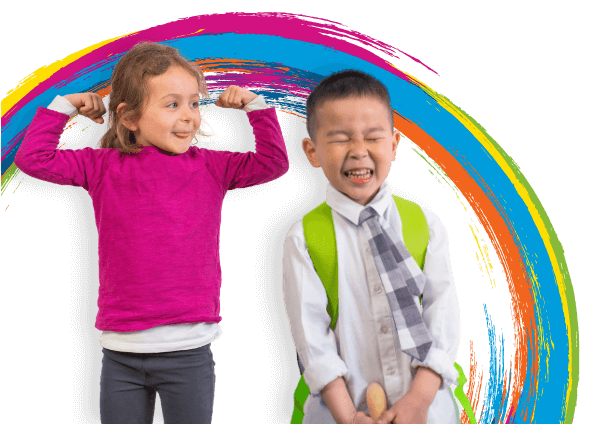 To the contrary— in fact, children can learn many languages at the same time, become completely bilingual or even mutilingual and there are only benefits from doing so. Teaching young children how to speak a second language is good for their minds, report two Cornell linguistic researchers, amongst many other academic studies.
To the contrary— in fact, children can learn many languages at the same time, become completely bilingual or even mutilingual and there are only benefits from doing so. Teaching young children how to speak a second language is good for their minds, report two Cornell linguistic researchers, amongst many other academic studies.
Helen Doron explains that bilingualism and even multilingualism is very common. In fact, it is actually unusual to be monolingual. Her unique methodology allows children as young as three months to learn English just like they learn their mother tongue-through repeated hearing, positive reinforcement and fun.
In this video, Helen Doron expertly explains the benefits and advantages of learning an additional language as early as possible.
Just as babies and infants learn their mother tongue by hearing words, sentences, songs and stories over and over again, and receiving positive feedback from their caretakers, so children can learn a foreign language using this same natural technique.
Learning a second language does not cause language confusion, language delay or cognitive deficit, which have been concerns in the past. In fact, according to the studies at the Cornell Language Acquisition Lab (CLAL), children who learn a second language can maintain attention despite outside stimuli better than children who know only one language.
That’s important, say Barbara Lust, a developmental psychology and linguistics expert, professor of human development and director of CLAL, and her collaborator, Sujin Yang, former postdoctoral research associate at the lab, because that ability is “responsible for selective and conscious cognitive processes to achieve goals in the face of distraction and plays a key role in academic readiness and success in school settings.”
In other words, “Cognitive advantages follow from becoming bilingual,” Lust says. “These cognitive advantages can contribute to a child’s future academic success.”
The most effective way to learn a second language, they say, is to put the young child in situations where the second language surrounds them. “We find that children learning a second language in an immersion setting show an overall success rate of grammatical knowledge similar to English monolinguals,” says Yang, now a postdoctoral fellow at the University of Toronto at Scarborough and at York University in Toronto. And the earlier that a child learns a second language, the more likely the child will more quickly attain native-like language proficiency.
Language is culture and greatly adds to the child’s brainpower. The Helen Doron method teaches English the way a child learns their mother tongue: naturally and with fun and enjoyment!
The international EFL (English as a Foreign Language) methodology is available for children from three months to 19 years, and is located at learning centres in 32 countries.
//








